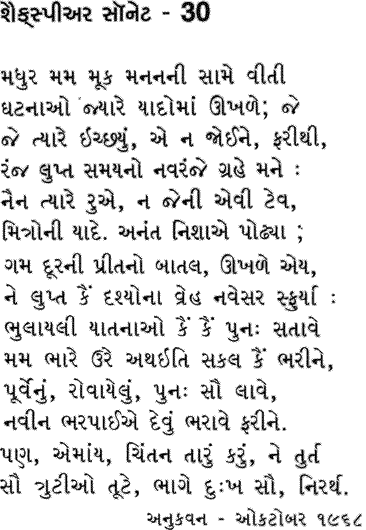Mohamed (Mahmad) Rupani

(31 July, 1912 - 19 August, 2016)
Click here for recent photo
(Most of the text below was taken from Gujarati Introduction in 'Angal-Kavya-Darpan: 1')
Birth and early education

Born on July 31, 1912 in Inhambane, Mtamba, Mozambique, Mohamed Rupani sailed to India in 1923 "to acquire education". He was one of several children, including siblings and a number of orphans from Mozambique, whom his father, Late Juma Premji Rupani, intended to enroll in academic institutions. Their arrival in Mumbai (Bombay), coincided with festivities in Rajkot for the visit of 'Hazar Imam', His Highness The Aga Khan III Sir Sultan Mohamed Shah, Spiritual Leader of Ismaili community. Although himself barely educated to Gujarati 'one-and-half-year' level, Late Juma Premji Rupani, who had emmigrated from Kodinar, India at the young age of 14, to settle in Mozambique in 1895, was an ardent believer of the importance of good education . He was returning to India after 23 years with the single objective of availing his own and other children the opportunity to acquire good education. Encouraged by 'Hazar Imam's' blessings in Rajkot for success in the noble intention of wanting to educate so many children from a far away land, Late Juma Premji Rupani took the children to Kodinar, where they would undertake academic studies. Mohamed Rupani received:
- Primary level education at a Gujarati school in Kodinar, India
- Junior high-school education, first year of English, at H. H. The Aga Khan Boys School in Mumbai (Bombay)
- High school education, second and third-year English, at an Anglo-vernacular school in Kodinar Father's library - a resource centre
Mohamed Rupani's studies were, however, interrupted from 1928, when he returned to Inhambane, Mozambique, where he remained until 1931. During this interruption, however, Mohamed Rupani took advantage of his father's voracious reading habit, going through almost everything in the latter's library including 'Chandrakant', Bhagvat Gita, The Quran, The Bible, 'Narmaghadh', Swami Dayanand Sarasvati's publications, 'Manikant Kavyamala' and father's own diaries. In addition, his father's desire to keep abreast of international news enabled Mohamed Rupani to read regularly popular publications of the time 'Bharati', 'Prajamitra Kesri', The Ismaili', 'Ismaili Aftab' (get a glimpse of Editorial Notes 1st October, 1937) and a Durban (South African) weekly Indian Views. Fully integrated in his adopted Portuguese-speaking black African country, Mozambique, Late Juma Premji Rupani, a self-educated literary mind, mastered Portuguese language, and published two Gujarati books
'Hind ane Africa-no Vepaar' (India and Trade in Africa)
and
 'Aga Khan Hirak Mahotsva Granth' (Diamond Jubilee Book). 'Aga Khan Hirak Mahotsva Granth' (Diamond Jubilee Book).
These combined literary elements provided Mohamed Rupani an ideal environment that would mould his intellectual prowess. Choosing education over riches

Declining a bag filled with diamonds, jewelery and money, offered by his mother as incentive to remain in Inhambane and build a business, Mohamed Rupani, opted to further his education. Unable to go to a school in South Africa he sailed to India where he attended Baroda High School (1928-1934), Baroda College (1934-1938), and graduated from Mumbai (Bombay) University in 1939 Drawn to poetry by 'Ginans'


Mohamed Rupani's faculty for writing poems has its roots in Ismaili community's 'Ginans' (devotional songs) that he sang at a very young age. As an adult, in matters of Incarnation,  Mohamed Rupani found similarities between teachings in the 'Ginans' on one hand and J. Krishnamurti's philosophy and studies of Theosophical Society on the other. Mohamed Rupani found similarities between teachings in the 'Ginans' on one hand and J. Krishnamurti's philosophy and studies of Theosophical Society on the other. Travels and residence

While at Baroda College, in 1936 Mohamed Rupani had met Miss Dilawer K. Kavi, first Muslim girl to join that institution, and married her in 1940. That year Mr. & Mrs. Rupani went to East Africa where they taught in schools in Zanzibar (1940-1941), Dodoma (1942-1949) and Mombasa (1949-1968). Following retirement, Mr. & Mrs. Rupani lived in Nairobi (1968), Ahmedabad (1968-1970), back to Nairobi (1970-1975), again in Ahmedabad (1975-1988), visited Lisbon (1988, 6 months), again Nairobi ((1988-1996), Porbandar (1996), Rajkot (1996-2000), Jamnagar (2000-2006). In November 2006 Mr. and Mrs. Rupani left Jamnagar to live at Dignity Lifestyle Retirement Township, Neral.
Wife of 66 years, affectionally known as 'Didi', Mrs. Dilawer Rupani, passed away in Mumbai, India, on 14 December, 2006, a month shy of her 89th birthday on 19 January. In mid-April, 2009 Mohamed Rupani left Dignity Lifestyle moving to Swami Ramanand Shastri Senior Citizens Home in Lonavala 110 kilometres from Mumbai, on Old Mumbai-Pune Highway, and at the end of November, 2013 he moved to Janaseva Foundation's Old Age Home in Panshet, 50 kilometres southwest of the city of Pune. Mohamed (Mahmad) Rupani is the author of:
>>
'Angal-Kavya-Darpan:1 and 2'
Gujarati version of selected English poems of some
216 poets
(click here to view complete list)
(14th Century to 20th Century)
- (See
Reviews
)
Earlier publications (currently out of print) include:
>>
 ('Yogini Maari')
,
His own Gujarati poems published in December 1969 ('Yogini Maari')
,
His own Gujarati poems published in December 1969
>>
Gujarati version of Shakespeare's 159
Sonnets
published in December 1977
>>
"Aapni Pasandgi"
Gujarati version of Shakespeare's play
'As You Like It'
published in January 1979
>>
Gujarati version of 1090
Japanese Haiku
published in June 1979
|

Check out the following Gujarati version of William Shakespeare's Sonnet 30

... and see Gujarati version of Break Break Break
Alfred Lord Tennyson (1809 - 1892)

How to order?
'Angal-Kavya-Darpan:1 and 2'
CAN $10 each part
(was CAN $17 each part):
for total of over 817 pages in Part 1 and Part 2 featuring 217 poets' works
add CAN $7 handling on orders by post
(calculate equivalent other currencies by clicking here "Currency Convertor")
To Order please click here
Website maintained by:
Mahebub Rupani
|





